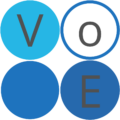Welcome
Despite the undisputed societal and political significance of economic inequality, we still lack knowledge about its political determinants – especially the role of political parties. While we know much about what voters think about (in)equality, we know little about how parties conceive of it and how this affects policies and inequalities. To address this gap, the research group Varieties of Egalitarianism draws on the wisdom of the (online) crowd to map parties‘ concepts of equality and assess their effects on policy choices and inequality outcomes.
We gathered data on parties‘ equality concepts in twelve OECD countries since 1970. Categorization was done via online crowdcoding of political texts, combining automatic classifiers with human coding of specific equality concepts. Analyzing 850,000 programmatic statements, we distinguish positive references to (class-based) economic equality from other equality-related statements. This allows us to map parties and governments regarding the importance given to economic equality, equal rights, and equal chances.
Our stylized findings so far are summarized in the leaky equality pipeline shown on this page. Equality, despite public demand, gets lost in transmission at three stages of the policy process: programmatic response, selective policy responses, and the varying impacts of policies on different types of (in)equality. For details, please consult our publication page.
The Leaky Pipeline of Egalitarianism

News
June 23, 2025
Alexander Horn, Martin Haselmayern and Jonathan Klüser received the final acceptance from the American Political Science Review for Why inequalities persist. Parties’ (non-)responses to economic inequality, 1970-2020, available as the pre-proof version:
party responses to inequality _ apsr
September 7, 2024
Alexander Horn and Leo Ahrens present a new paper at APSA 2024 on whether egalitarian parties promoting economic equality and redistribution also implement such policies when in office. The results show that egalitarian parties do implement policies, improving welfare state compensation and pre-distribution, but not regarding fiscal redistribution from the rich to the poor.
September 6, 2024
Alexander Horn and Matthias Enggist present a new paper on the Radical Right, Equality and the Socio-Economic Composition of Governments at the APSA 2024 meeting in Philadelphia. We find that parts of the Radical Right increasingly cater to the left-authoritarian voters. The paper will be presented in a panel on left authoritarianism organized by Herbert Kitschelt and Philipp Rehm.
July 4, 2024
Leo Ahrens and Alexander Horn presented their working paper „How egalitarian governments pursue equality yet evade redistribution“ at EPSA 2024 in Cologne.
June, 2024
Alexander Horn, Anthony Kevins and Kees van Kersbergen won the SER best article prize 2024 for their article: „The paternalist politics of punitive and enabling workfare: evidence from a new dataset on workfare reforms in 16 countries, 1980-2015“
May 4, 2024
Alexander Horn and Sebastian Kohl have published a new paper in the Journal of European Social Policy. The paper „Beyond trade-offs: Exploring the changing interplay of public and private welfare provision in old age and health in the historical long-run“ can be accessed here.
April 10 – 12, 2024
Alexander Horn, David Weisstanner and Carsten Jensen presented their new working paper „Winning with Equality: How Left-wing Parties Attract Votes but Amplify Electoral Cleavages“ at the In_equality Conference in Konstanz. The paper can be accessed here.
May 11, 2023
January 24, 2023
We presented at the In_equality Colloquium! More information.
November, 2022
We presented our papers Neoliberal, meritocratic, and “woke”? Mapping the Left’s concepts of equality (with new data), 1970-2021 and Parties’ (non)responses to levels and changes of inequality: Reconciling rival views using new data on equality concepts at the conference of the Austrian Political Science Association (AuPSA).
September 16, 2022
Presentation Nr. 2 at APSA! Parties’ (non)responses to levels and changes of inequality: Reconciling rival views using new data on equality concepts. Check out our APSA paper. Updated now!
September 15, 2022
Presentation at APSA in Montreal! Neoliberal, meritocratic, and “woke”? Mapping the Left’s concepts of equality (with new data), 1970-2021. APSA paper. Updated now!
July 7, 2022
We are at the Inequality Workshop in Oxford. Great feedback by the discussant David Rueda (i.a.). For more info, check out:
Literature
Groundwork
Feasibility Study/Pilot:
Horn, Alexander. 2019. Can the Online-Crowd match Real Expert Judgments? How Task Complexity and Coder Location Affect the Validity of Crowd-Coded Data. European Journal of Political Research 58:1, 236-247.
https://ejpr.onlinelibrary.wiley.com/doi/full/10.1111/1475-6765.12278
The project is located at the University of Konstanz and the Cluster of Excellence The Politics of Inequality: Perceptions, Participation and Policies.
For information on upcoming project puplications please have a look at Research section.
ACKNOWLEDGEMENTS
Financial support was provided within the research project „Varieties of Egalitarianism. Mapping the Politics of Inequality with Online Crowdcoding“ funded by the German Research Foundation (DFG; Project number 428250727) within the Emmy Noether Programme Research Funding. The project is led by Alexander Horn.
The Emmy Noether Programme of the German Research Foundation (DFG) gives exceptionally qualified early career researchers the chance to qualify for the post of professor at a university by leading an independent junior research group for a period of six years. The programme is open to postdocs and junior professors with temporary contracts who are at an early stage in their research careers. Find out more about the program on the DFG website.
© 2025 Alexander Horn, University of Konstanz. All rights reserved. Privacy Policy Statement.





